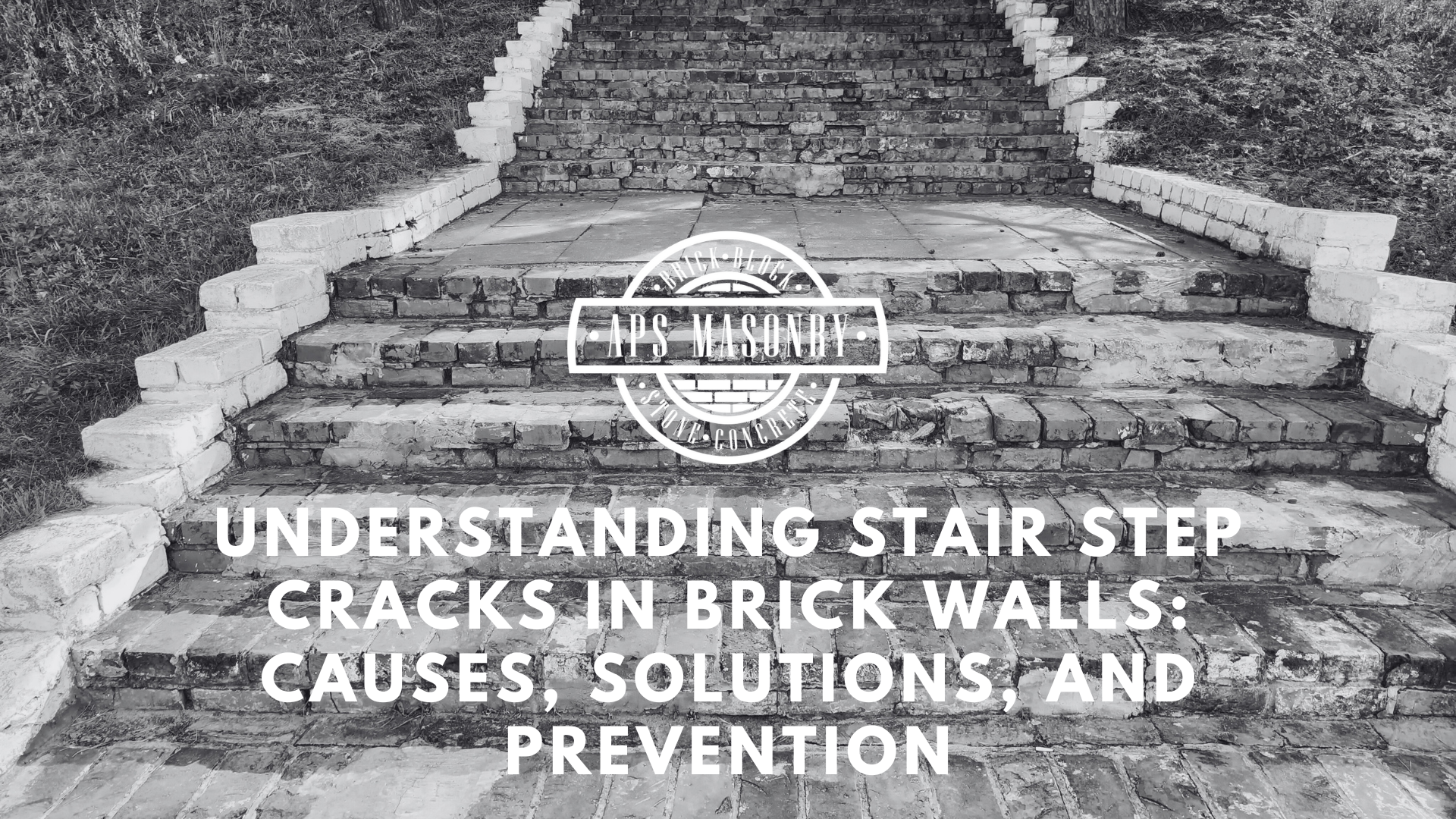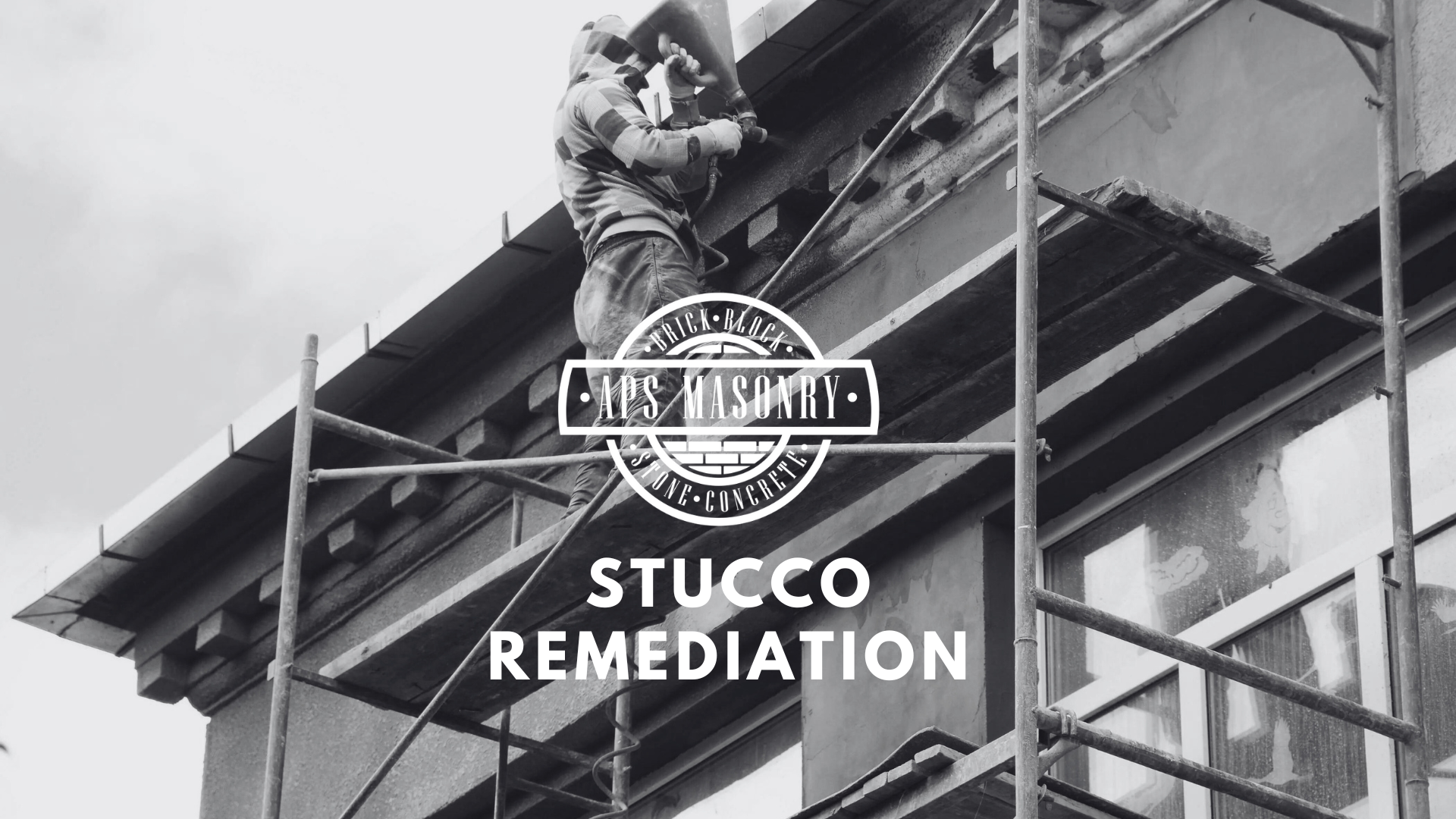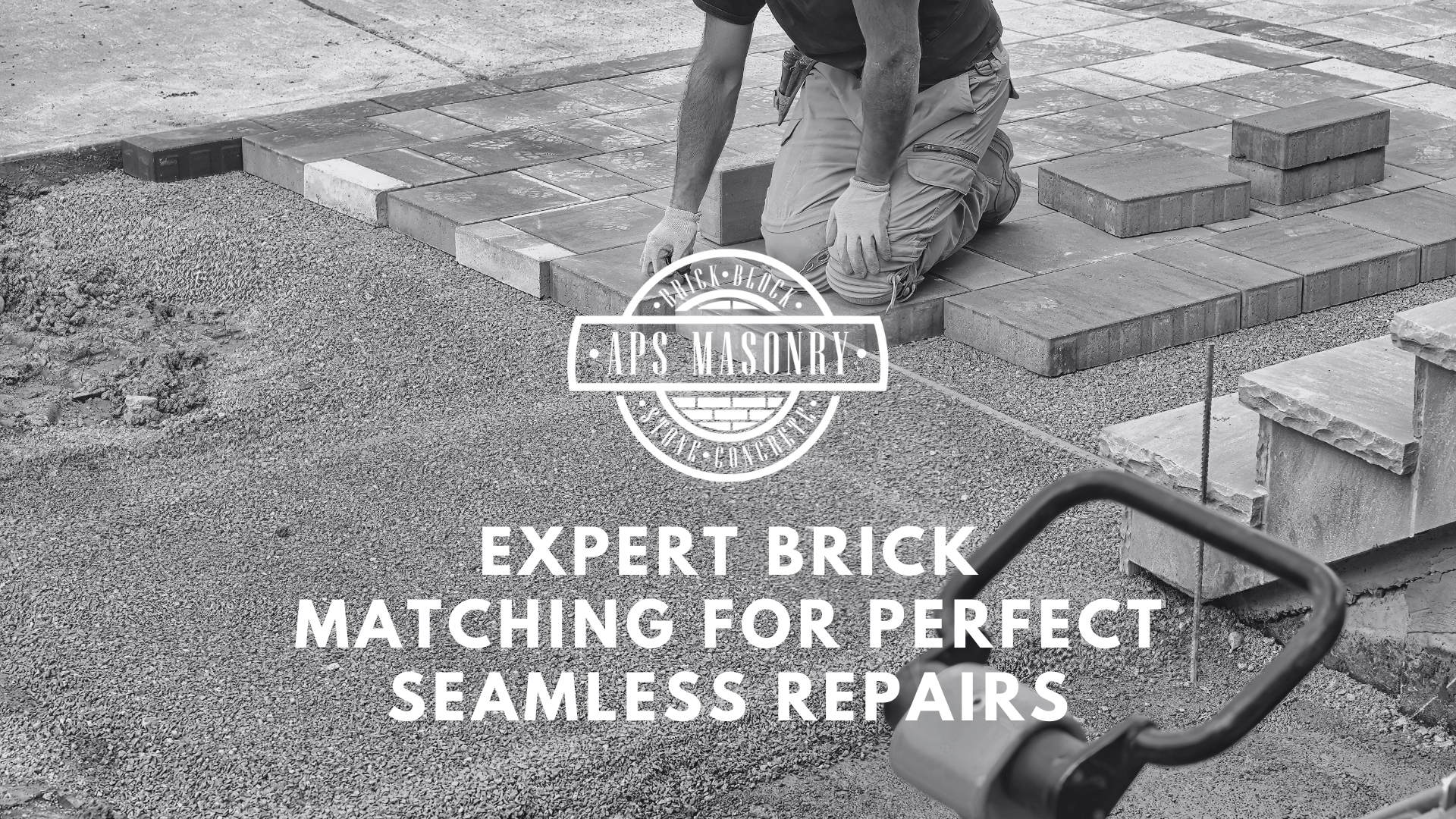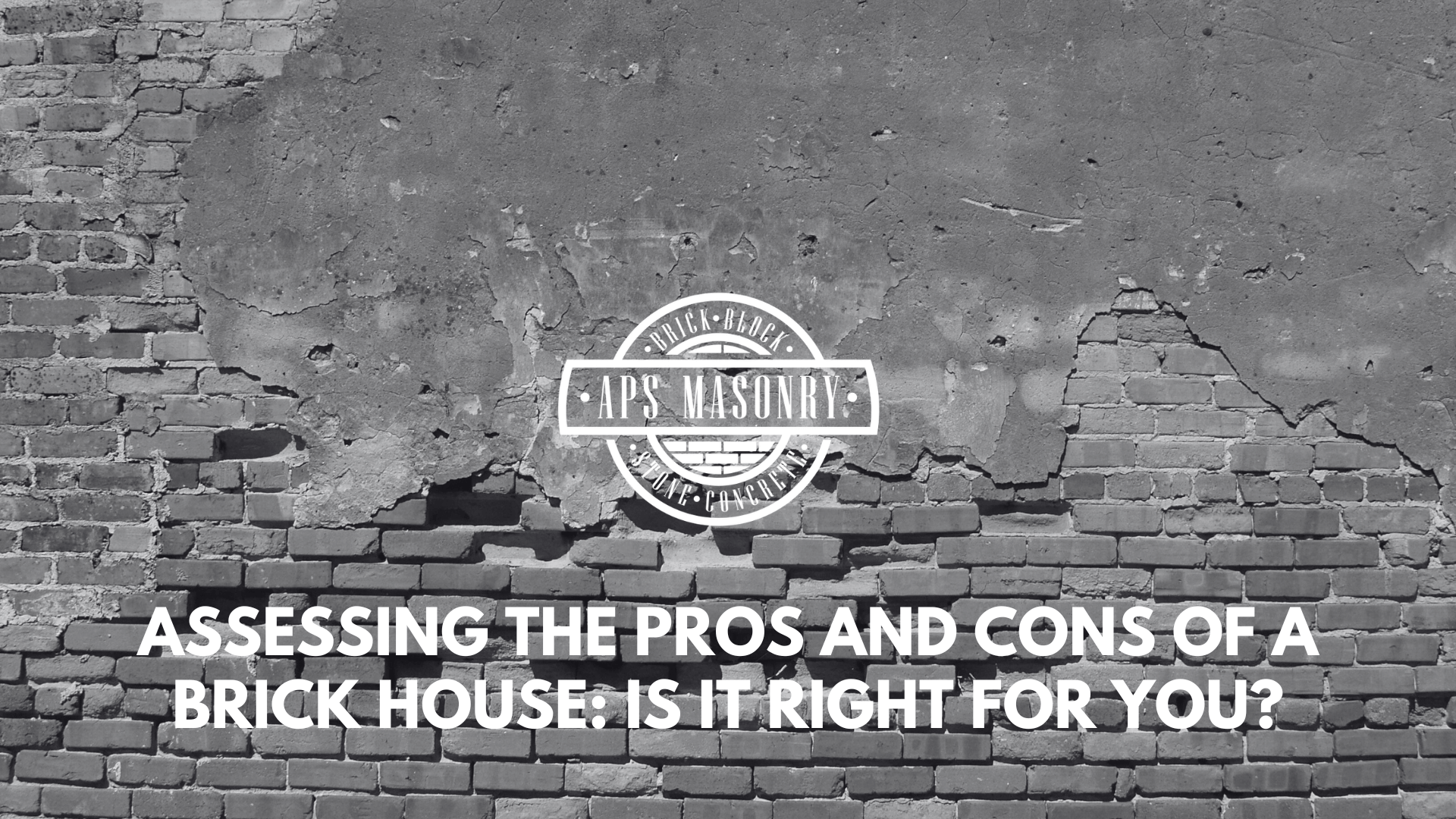Stucco Remediation: Key Pros and Cons for Homeowners
Protect your home with APS Masonry's expert stucco remediation. In many parts of Pennsylvania, seasonal weather patterns, such as heavy rain,...
5 min read
 Alec Serowatka
:
Jul 5, 2024 11:15:00 AM
Alec Serowatka
:
Jul 5, 2024 11:15:00 AM

Stair step cracks in brick walls can indicate serious structural problems like foundation settling and water damage. In places like Philadelphia, where older buildings and extreme weather are common, these cracks are particularly prevalent. Addressing them quickly is crucial to prevent further damage and ensure your home’s safety. Professional repair offers accurate diagnosis and long-term solutions, avoiding the risks and higher costs of DIY fixes.
Don’t let small cracks become big problems, contact a professional to keep your brick walls strong and secure.
Stair step cracks are a specific pattern of cracks that appear in brick walls. As the name suggests, these cracks resemble a set of stairs, zigzagging through the mortar joints between the bricks. This pattern is usually a sign that the wall is experiencing uneven pressure or movement.
So, why is this pattern concerning? Stair step cracks often indicate underlying structural issues. They are not just surface-level cosmetic problems; they can signify deeper problems with the foundation or the overall stability of the wall. Ignoring these cracks may result in more severe damage over time, making it important to address them early. Imagine noticing a stair step crack in your home's brick wall. At first, it might seem minor, but over time, you could see the crack widening and spreading. Eventually, this can compromise the entire wall's integrity, leading to costly repairs or even posing safety risks. You can guarantee that your home remains safe and sound by keeping a watchful eye over your brick walls.
Stair step cracks in brick walls result from several factors, all of which relate to the stability and movement of the structure. Here are some common causes:
For example, a homeowner in Philadelphia notices stair step cracks appearing on their brick veneer. After a thorough brick wall inspection, it was found that the house's foundation had settled unevenly due to fluctuating water tables in the area. The combination of water damage and foundation movement caused the cracks, highlighting the importance of addressing underlying issues promptly.
Understanding the causes of stair step cracks is the first step in preventing further damage. By identifying these factors early, homeowners are able to take necessary actions to maintain the structural integrity of their brick walls.
Stair step cracks are quite common in Philadelphia, given the city's architectural history and the prevalence of brick construction. Many homes and buildings in Philadelphia are decades, if not centuries old, and have faced the wear and tear of time, weather, and environmental changes.
Historical Context: Philadelphia boasts a rich history with numerous buildings and homes dating back to the 18th and 19th centuries. These historic brick houses were built using traditional methods and materials, which, while durable, are not immune to the passage of time. The older the building, the more likely it is to experience issues like brick wall cracks due to settling and environmental exposure.
Construction Methods: The construction methods used in the past may not always meet today's standards. For instance, older brick walls might lack the modern reinforcements that help prevent structural issues. In Philadelphia, where many homes were built during rapid urban expansion periods, it's not uncommon to find brickwork cracks that have developed over time.
Environmental Factors: Philadelphia's climate plays a significant role in the occurrence of stair step cracks. The city experiences a full range of seasons, from hot, humid summers to cold, icy winters. The freeze-thaw cycles cause significant stress on brick walls, leading to expansion and contraction that eventually result in cracks. Additionally, the city's varying moisture levels impact soil stability, contributing to foundation issues that manifest as brick wall damage.
Addressing stair step cracks in brick walls is not a task to be taken lightly. While it might be tempting to tackle these issues with a DIY approach, professional intervention is highly recommended for several reasons:
Professionals have the expertise to accurately diagnose the cause of stair step cracks. What might appear as a simple crack could be a symptom of a more serious underlying problem, such as foundation issues or large structural movement. An accurate diagnosis ensures that the root cause is addressed, not just the visible damage.
Brick wall repair requires specialized tools and techniques that professionals are trained to use. From assessing brick wall deterioration to implementing effective brick wall restoration methods, professionals ensure that the repair is done correctly and safely. This includes using the right materials to match the original construction, which is particularly important for maintaining the aesthetic and structural integrity of historic buildings.
Professionals provide long-term solutions that prevent the recurrence of brick masonry cracks. They can identify and address issues such as poor drainage, foundation instability, and inadequate construction practices that contribute to brick wall damage. By resolving these underlying problems, professionals help ensure the durability and stability of the brick walls.
While professional repair might seem expensive initially, it is cost-effective in the long run. Ignoring or improperly repairing stair step cracks may lead to more severe damage, requiring extensive and costly repairs down the line. For example, unaddressed cracks can compromise the structural integrity of the entire wall, leading to potential collapse and significant safety hazards.
At APS Masonry Contracting, we specialize in tackling stair step cracks in brick walls with a proven, professional approach. Here’s why hiring us is your best choice over attempting a DIY fix:
We start with a thorough inspection of your brick walls, identifying the root cause of the cracks—whether it’s foundation issues, water damage, or structural movement. Our expertise guarantees that we diagnose the problem accurately, something that’s often missed in DIY assessments.
Based on our diagnosis, we create a tailored repair plan. We use high-quality materials and industry-leading techniques to ensure the repairs are durable and blend seamlessly with your existing Philadelphia brickwork. Our plans are designed to address not just the cracks, but also the underlying causes to prevent future problems.
Our skilled technicians handle the repair process with precision and care. From stabilizing the foundation to repointing the mortar joints, we ensure that every step is done right the first time. This level of professionalism guarantees a long-lasting solution.
While DIY repairs might seem cheaper initially, they often lead to more significant issues and higher costs down the road. By hiring APS Masonry Contracting, you invest in a solution that saves you money and stress in the long run. We provide detailed cost estimates upfront, so there are no surprises.
Our process includes a thorough quality check to make sure the stability and integrity of your brick wall. We also offer preventative brick maintenance to help you avoid future problems. With APS Masonry Contracting, you can rest easy knowing your home is in expert hands.
Stair step cracks in brick walls are more than just an aesthetic issue—they signal significant structural problems. Addressing these cracks promptly with professional help is key to maintaining the safety and stability of your home.
At APS Masonry Contracting, we bring expertise, precision, and peace of mind to every repair job. Don’t let minor cracks turn into major headaches. Contact us today for a thorough inspection and reliable repair solutions. Preserve the beauty of your brick walls by trusting the experts.

Protect your home with APS Masonry's expert stucco remediation. In many parts of Pennsylvania, seasonal weather patterns, such as heavy rain,...

Are you facing the challenge of matching bricks for repairs? Whether you're working on restoring a historic building or blending new bricks into an...

Thinking about a brick home? Our article helps you decide. Brick homes are strong, need little maintenance, and save on energy costs, boosting your...